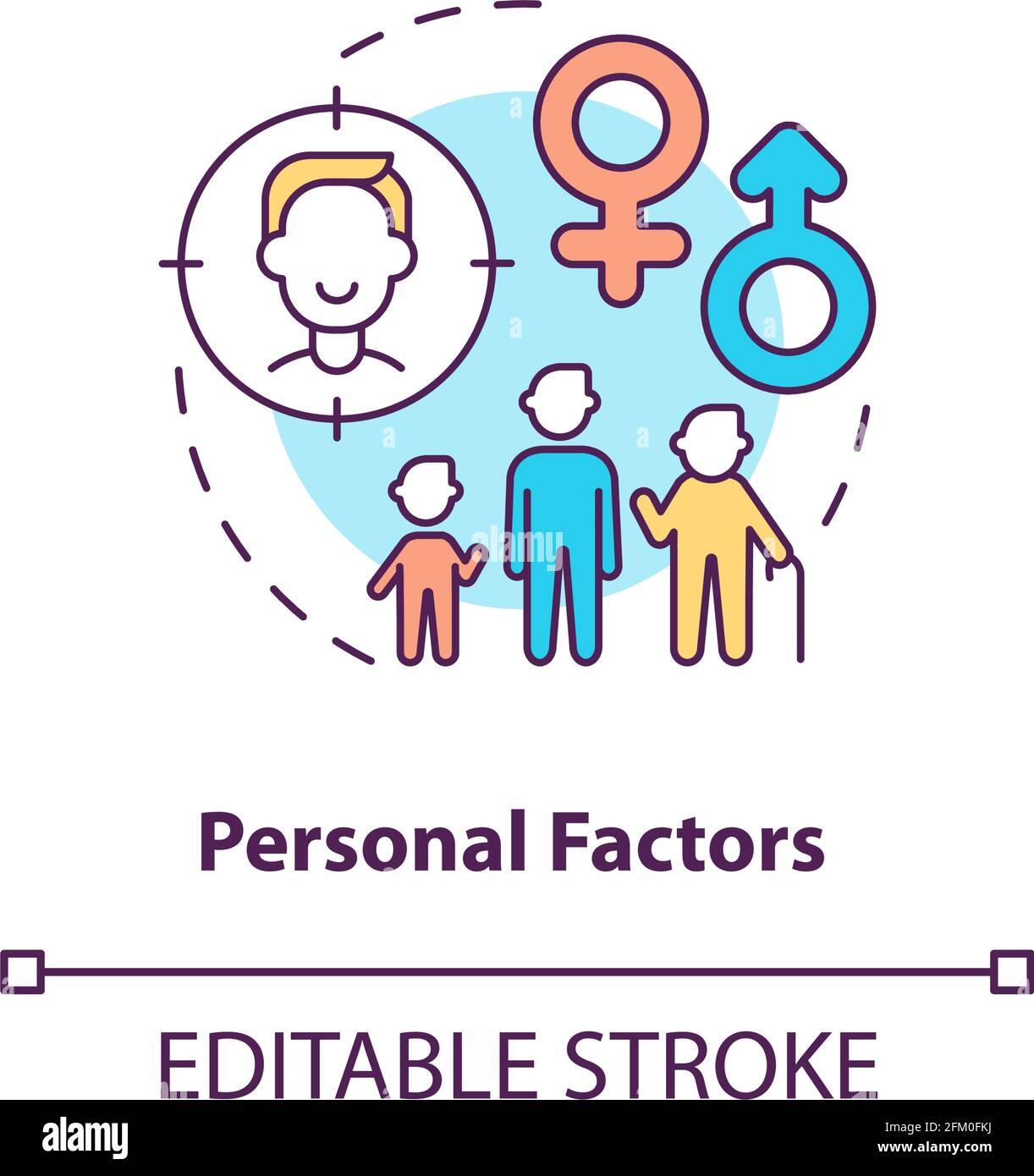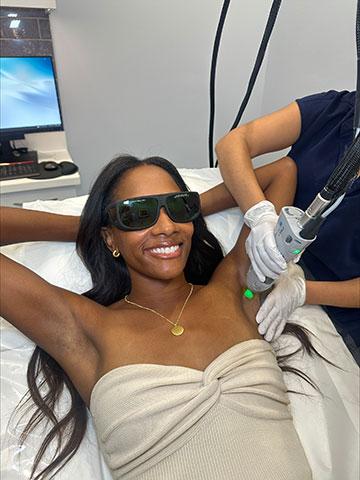Picture this: it’s a sun-drenched morning, you’re armed with your fluffiest towel, and you’ve set aside valuable me-time to tackle those pesky stubbly intruders. But as you squint into the mirror, razor in hand, you find yourself day-dreaming about a magical wand that could zap away those unwanted hairs for good. Enter the realm of laser hair removal—a procedure as futuristic as it sounds. But here’s the million-pound question: can you expect the NHS to come to your follicular rescue? Pop the kettle on and settle in, because we’re about to delve into the ins, outs, and nifty little secrets of laser hair removal within the hallowed halls of the National Health Service. Get ready to navigate this hairy topic with us, unraveling whether it’s a dream waiting to come true or one best left in the realm of fantasy.
Table of Contents
- Understanding Laser Hair Removal: What It Entails and How It Works
- Navigating the NHS: Availability of Laser Hair Removal Services
- Cost Considerations: Is Laser Hair Removal Covered by the NHS?
- Safety First: Ensuring High Standards and Qualified Practitioners
- Is It Right for You? Personal Factors and Professional Advice
- Q&A
- To Wrap It Up
Understanding Laser Hair Removal: What It Entails and How It Works
Laser hair removal is a popular cosmetic procedure aimed at reducing unwanted hair by using concentrated beams of light—lasers. These lasers target hair follicles, emitting light absorbed by the pigment in the hair. This light converts to heat, which then damages the follicle and inhibits future hair growth. Unlike traditional methods such as shaving or waxing, laser hair removal offers a more long-term solution, potentially even achieving permanent hair reduction after several treatments.
Key Benefits of Laser Hair Removal:
- **Precision:** Lasers can selectively target dark, coarse hairs while leaving the surrounding skin undamaged.
- **Speed:** Each pulse of the laser takes a fraction of a second and can treat multiple hairs simultaneously. Small areas, such as the upper lip, can be treated in less than a minute.
- **Predictability:** Most patients experience permanent hair loss after an average of three to seven sessions.
Before undergoing laser hair removal, it’s essential to attend a consultation with a qualified practitioner. They will assess your skin type, hair type, and medical history to determine if you’re a suitable candidate for the procedure. Not all hair colors and skin types respond equally well to laser hair removal. The best results are typically seen in individuals with light skin and dark hair because the laser targets the pigment in the hair. However, advancements in laser technology are making it increasingly effective for a wider range of skin and hair combinations.
Here’s a quick overview to help you understand the specifics:
| Aspect | Details |
|---|---|
| **Number of Sessions** | 3-7 |
| **Duration per Session** | Few minutes to an hour |
| **Ideal Candidates** | Light skin, dark hair |
| **Recovery Time** | Minimal |

Navigating the NHS: Availability of Laser Hair Removal Services
Many are surprised to learn that the **NHS does not typically offer laser hair removal services** as part of its standard treatment offerings. Given its classification as a cosmetic procedure, individuals looking to permanently reduce unwanted hair are generally expected to seek private clinics. However, this doesn’t mean all hope is lost. For specific medical conditions such as hirsutism, which can cause excessive hair growth due to hormonal imbalances, the NHS may provide assistance, but such cases are quite rare.
The path to securing NHS-funded laser hair removal usually involves a consultation with your GP. They would need to establish a clear medical necessity. If you’re experiencing psychological distress or severe physical discomfort due to abnormal hair growth, your GP could refer you to a specialist. Be prepared to discuss how methods like shaving or waxing have failed and the impact on your daily life.
- Medical necessity is crucial.
- Consult with your GP first.
- Consider the psychological and physical impacts.
- Be open about how other methods have failed.
Should you find the process daunting or your case isn’t deemed medically necessary, exploring private options might be your best bet. Many clinics offer competitive rates and flexible payment plans. It’s beneficial to shop around and read reviews before making a decision. A quick online search can yield numerous local practices specializing in laser hair removal, often with consultations to discuss your specific needs.
| Service | NHS Availability | Private Clinic Availability |
|---|---|---|
| Initial Consultation | Yes (if referred by GP) | Yes |
| Laser Hair Removal | Rare Cases | Widely Available |
| Flexible Payment Plans | No | Yes |
while the NHS does not generally cover laser hair removal for cosmetic reasons, discussing your situation with a healthcare professional can provide clarity. For many, engaging with a private clinic may be the more seamless route. Equipped with the right information, you can navigate your options and find a solution that best suits your needs.

Cost Considerations: Is Laser Hair Removal Covered by the NHS?
Navigating the maze of healthcare costs can be bewildering, especially when it comes to elective procedures like laser hair removal. Whether you’re considering this treatment for aesthetic reasons or as a solution to a medical condition, understanding how and if the NHS covers the costs is crucial.
Here’s a quick look at the most common factors determining eligibility:
- Medical Necessity: Laser hair removal might be covered if deemed medically necessary, such as for severe cases of hirsutism or folliculitis.
- Documentation: Comprehensive medical records and a referral from a GP or specialist are often required to justify the need.
- Treatment Availability: Accessibility can vary significantly depending on your local Clinical Commissioning Group (CCG).
| Criteria | NHS Coverage Likelihood |
|---|---|
| Cosmetic Reasons | No Coverage |
| Severe Hirsutism | Possible |
| Folliculitis | Possible |
| Medical Referral | Enhances Chances |
Budgeting for laser hair removal also means considering private consultation and treatment options if the NHS coverage criteria aren’t met. The private route, although potentially more costly, offers flexibility and availability. **Comparing costs** between NHS services and private clinics is essential, as prices can vary significantly. It might be beneficial to look into financing options provided by clinics, which could ease the financial burden.
while the NHS might cover laser hair removal under specific medical conditions, purely cosmetic treatments are typically not supported. Assessing your eligibility with your GP and comparing private clinic options ensures you make an informed decision tailored to your needs.

Safety First: Ensuring High Standards and Qualified Practitioners
Navigating the world of laser hair removal can be daunting, especially when you’re weighing the options on whether to trust the NHS with your care. You’ll be glad to know that in the realm of safety and competence, the NHS has strict standards and employs highly **qualified practitioners**. They adhere to **stringent guidelines** designed to protect patients and ensure effective results.
When seeking laser hair removal services via the NHS, you can expect to find:
- **Certified dermatologists**: All professionals are fully certified and undergo continual training.
- **State-of-the-art equipment**: The NHS facilities are equipped with the latest laser technology.
- **Rigorous hygiene practices**: Clean and sterile environments are a top priority.
- **Tailored consultations**: Personalized assessments to meet your unique skin and hair type needs.
Here’s how NHS laser hair removal stacks up:
| Aspect | NHS | Private Clinics |
|---|---|---|
| Practitioner Qualification | Highly regulated | Varies widely |
| Cost | Generally lower | Higher |
| Equipment | Latest technology | Inconsistent |
| Safety Standards | Extremely high | Varies |
The focus on **comprehensive patient safety** means the NHS spares no effort in evaluating each patient’s suitability for laser hair removal. Thorough initial consultations are carried out to understand personal medical histories, skin types, and any potential contraindications. This thoughtful, individualized approach helps to **minimize risks** and enhance positive outcomes.
So, next time you consider laser hair removal, remember that with the NHS, you’re in safe hands. The combination of **expert knowledge**, **cutting-edge resources**, and a dedicated focus on patient welfare makes the NHS a reliable choice for your hair removal needs. You can count on them to deliver from start to finish, ensuring you’re always treated with the utmost care and professionalism.

Is It Right for You? Personal Factors and Professional Advice
Choosing laser hair removal is a highly personal decision influenced by various factors. **Skin type**, **hair color**, and **medical history** all play significant roles in determining the effectiveness and safety of the procedure. Those with lighter skin tones and darker hair tend to see the best results, as the contrast allows the laser to target hair follicles more effectively. Conversely, individuals with darker skin or lighter hair might require more sessions or may not achieve the same level of success. Consultation with a professional can help assess your suitability and set realistic expectations.
- Skin Type: Lighter skin typically responds better.
- Hair Color: Darker hair provides better results.
- Medical History: Certain conditions or medications could reduce effectiveness.
When considering the NHS for laser hair removal, it’s important to know that they usually cover the treatment only if it’s medically necessary. For cosmetic reasons, you might need to explore private options. Conditions such as **polycystic ovary syndrome (PCOS)**, which can cause excessive hair growth, might make you eligible for NHS support. Always consult your GP or a dermatology specialist to understand your eligibility and any associated medical criteria.
Here is a quick comparison of the NHS vs. private options for laser hair removal:
| Aspect | NHS | Private |
|---|---|---|
| Coverage | Medically necessary cases only | Available for anyone |
| Cost | Free or subsidized | Varies, often per session |
| Waiting Time | Potentially long | Usually shorter |
Professional advice is invaluable in navigating your options. Dermatologists and qualified laser technicians can provide personalized assessments, ensuring you’re well-informed about the risks, benefits, and expectations of the procedure. Seek clinics that offer **consultations and patch tests** to determine how your skin responds to the treatment. Additionally, always confirm the credentials and experience of the practitioners to ensure safety and optimal results. Your skin deserves the best care, so don’t hesitate to ask questions and consider your own comfort and confidence in the decision-making process.
Q&A
Q&A: Laser Hair Removal: Can You Count on the NHS?
Title: Laser Hair Removal: Can You Count on the NHS?
Q1: So, what’s all the buzz about laser hair removal?
Ah, laser hair removal is the modern-day magic wand for those pesky unwanted hairs! Using concentrated beams of light, it targets and destroys hair follicles, leaving your skin smoother than a freshly zambonied ice rink.
Q2: Wow, sounds like a dream! But can I get this done through the NHS?
Here’s the scoop: the NHS typically reserves its resources for medical necessities, and, unfortunately, laser hair removal for cosmetic reasons doesn’t usually make the cut. However, if you have a medical condition causing excessive hair growth, like Polycystic Ovary Syndrome (PCOS), you might be in luck!
Q3: Ah, gotcha. But what does the NHS consider a medical necessity?
Great question! Conditions like PCOS or hypertrichosis could potentially qualify you for NHS-covered laser hair removal. If your hair growth is causing severe psychological or physical distress, consult your GP—they can help assess if you might qualify under medical grounds.
Q4: If I don’t qualify, what are my options?
Don’t worry; there’s still hope! There are plenty of private clinics that offer laser hair removal treatments. Do your homework, though! Look for licensed and reputable establishments—it’s your skin we’re talking about, after all!
Q5: Any advice for someone considering laser hair removal privately?
Absolutely! First, ensure that the clinic has qualified practitioners. Second, ask about their equipment—latest laser technologies tend to be more effective and safer. And third, don’t be shy about discussing your skin type and hair color; these factors can affect the outcome. Lastly, always check for customer reviews! They’re like the secret map to laser hair removal treasure.
Q6: What should I expect during and after the process?
Picture this: you’re comfortably lounging in a chair, wearing nifty eyewear to protect your peepers. The technician zaps away with their state-of-the-art laser. You might feel a little sting, but no worse than an elastic band snap. Post-treatment, your skin may be a tad red and sensitive, kinda like you’ve been in the sun too long. Keep that skin protected and moisturized, and you’re golden!
Q7: Any last words of wisdom?
Just this: whether you’re exploring the NHS route or going private, take your time to research and consult professionals. It’s your body, and you deserve the best care! Plus, say goodbye to endless shaving and waxing—hello, carefree smoothness!
Conclusion:
Laser hair removal might not always be an NHS thing, but understanding your options can lead you to the best choice for your needs. Here’s to smoother, happier days ahead!
Feeling smooth and savvy? Here’s hoping your journey to hair-free happiness is as seamless as possible!
To Wrap It Up
As our exploration into the availability of laser hair removal through the NHS comes to a close, it becomes evident that navigating the world of medical aesthetics requires a blend of patience, persistence, and a pinch of pragmatism. While the NHS typically reserves laser hair removal for clinically significant cases, knowing what qualifies and how to advocate for yourself can light the way to a smoother future.
Remember, your journey is uniquely yours—whether it leads you to embrace your natural allure, seek private treatments, or diligently pursue NHS options. So, armed with newfound knowledge and a spirited curiosity, step forward into your next chapter. Here’s to making informed decisions and feeling fabulous in your own skin. After all, every inch of you deserves to shine! 🌟






